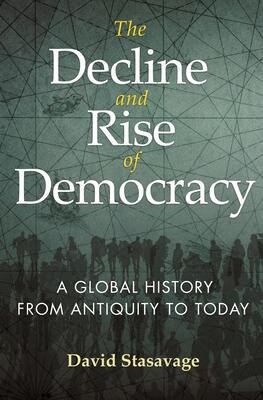
The Mystery of the Kibbutz: Egalitarian Principles in a Capitalist World
door
Ran Abramitzky
Nog geen beoordelingen
Mystery
History
Formaat
Kindle
Pagina's
355
Taal
Engels
Gepubliceerd
Feb 13, 2018
Uitgever
Princeton University Press
Beschrijving
In a world dominated by capitalist ideals, the kibbutz movement stands as a remarkable anomaly. This work explores the resilience of the kibbutz system, illustrating how communities built on egalitarian principles managed to thrive amidst economic contradictions. Readers are invited to delve into the historical context of kibbutzim, which emerged as a response to social inequalities and aimed for communal living and shared resources.
The author probes the intricate balance these communities maintained between their utopian ideals and the realities of a market-driven society. Through engaging narratives and insightful analysis, the book reveals the challenges faced by kibbutzim as they navigated changing socio-economic landscapes. It portrays the evolution of these communities, offering a nuanced understanding of their adaptability.
Moreover, the text delves into the philosophical underpinnings of the kibbutz ideology, questioning how such a radical social structure could survive, and even flourish, where traditional capitalist systems often falter. It encourages readers to reflect on the implications of mutual aid, cooperation, and shared responsibility in today’s world.
Ultimately, this examination serves not only as a historical account but also as a contemplation of the values that can be extracted from the kibbutz experience. It invites discussions on sustainability and the potential for different economic models to coexist in a broadly capitalist framework.
The author probes the intricate balance these communities maintained between their utopian ideals and the realities of a market-driven society. Through engaging narratives and insightful analysis, the book reveals the challenges faced by kibbutzim as they navigated changing socio-economic landscapes. It portrays the evolution of these communities, offering a nuanced understanding of their adaptability.
Moreover, the text delves into the philosophical underpinnings of the kibbutz ideology, questioning how such a radical social structure could survive, and even flourish, where traditional capitalist systems often falter. It encourages readers to reflect on the implications of mutual aid, cooperation, and shared responsibility in today’s world.
Ultimately, this examination serves not only as a historical account but also as a contemplation of the values that can be extracted from the kibbutz experience. It invites discussions on sustainability and the potential for different economic models to coexist in a broadly capitalist framework.
Recensies
Nog geen beoordelingen
Wees de eerste om dit boek te recenseren en deel je gedachten
Voeg Eerste Recensie ToeLeeslogboek
Geen leeslogboeken gevonden
Begin met het volgen van je leesvoortgang om logboeken hier te zien
Voeg je eerste leeslogboek toeNotities
Geen notities gevonden
Begin met het toevoegen van notities om ze hier te zien
Voeg je eerste notitie toeTransactielogboek
Geen transactielogboeken gevonden
Begin met het volgen van je boektransacties om logboeken hier te zien
Voeg je eerste transactielogboek toe


















